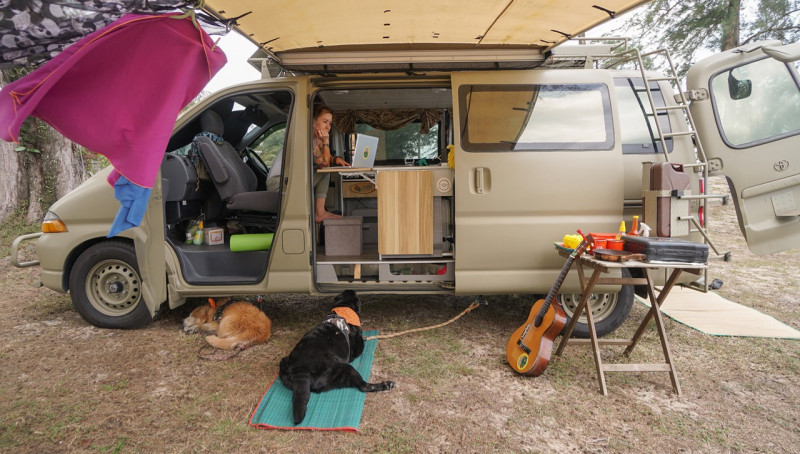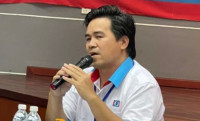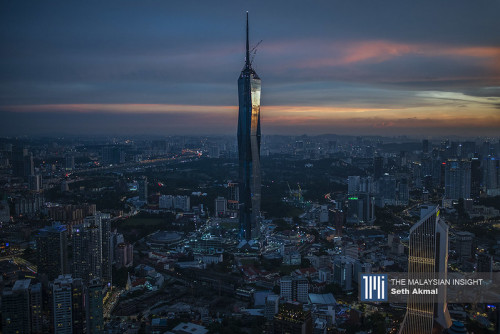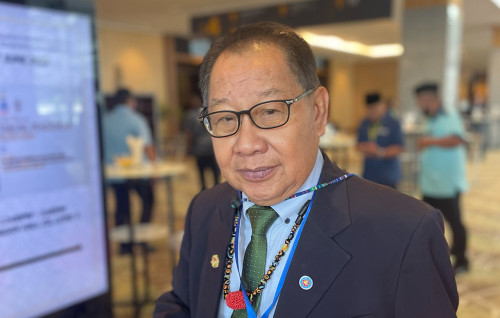HAVE you ever looked around your home and wondered how you accumulated so much… stuff? Is your ‘cost of living’ a burden that weighs you down? Have you ever been concerned about your carbon footprint, or felt the urge to sell up and live the simple life? I spoke to two couples who have taken the bold step to transform their lifestyles into something more harmonious, balanced, and ultimately, affordable.
Sara Lo and her partner, Sazly Marhusin, have run ‘Doggy Bag’, a successful fresh-cooked pet food company, for the past 10 years. When their business took off, they were living in a so-called ‘eco home’.
“Awareness of energy consumption and recycling has been ingrained in me from young,” confides Sara, “as my parents hated waste.”
She was thus disappointed to find out the ‘eco’ value of their townhouse was minimal.
“In our business, we do so much to promote healthy living for animals. We wanted to make changes in our lives, too.”
Audaciously, Sara and Sazly put their home on the market. Their bold plan was to create a house that set a standard for eco-building in the future.
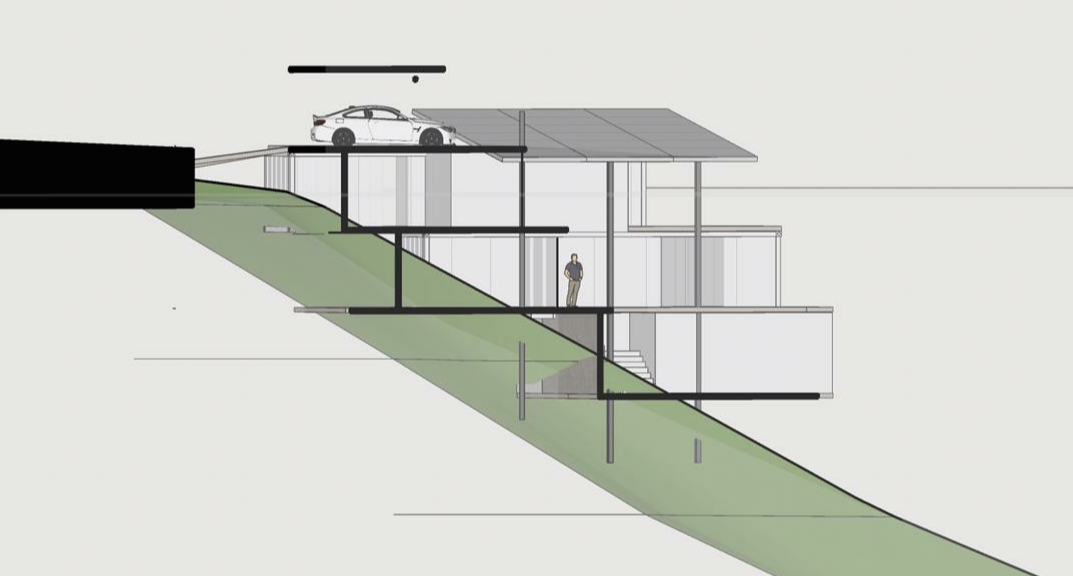
Sazly explains: “We devised a four-point framework. Firstly, the build had to be ecological, and harmonious with its surroundings. We are using recycled shipping containers, reclaimed wood etc. The build will follow the steep slope of the land rather than destroy it and will be decorated with cladding to look a part of the forest.
“Next, the design had to allow for cooling without air cond, to reduce energy consumption.
“Thirdly, we wanted renewable energy. And the fourth point was self-sufficiency. Like in my grandfather’s day, we have created space for growing our food. As we build, we are preserving the topsoil so that the earth will be more fertile, allowing the jungle to work with us.”
Sara continues: “We want to take advantage of our tropical climate. We will use rainwater to flush the toilet and quench the gardens. The heat expelled from the air cond compressors will heat our water. The carefully-positioned solar panels will catch the morning sun’s rays, maximising the energy collection.
“The house is called Jejari Hijau (green fingers), because the design looks like fingers from above, reaching into the jungle.”
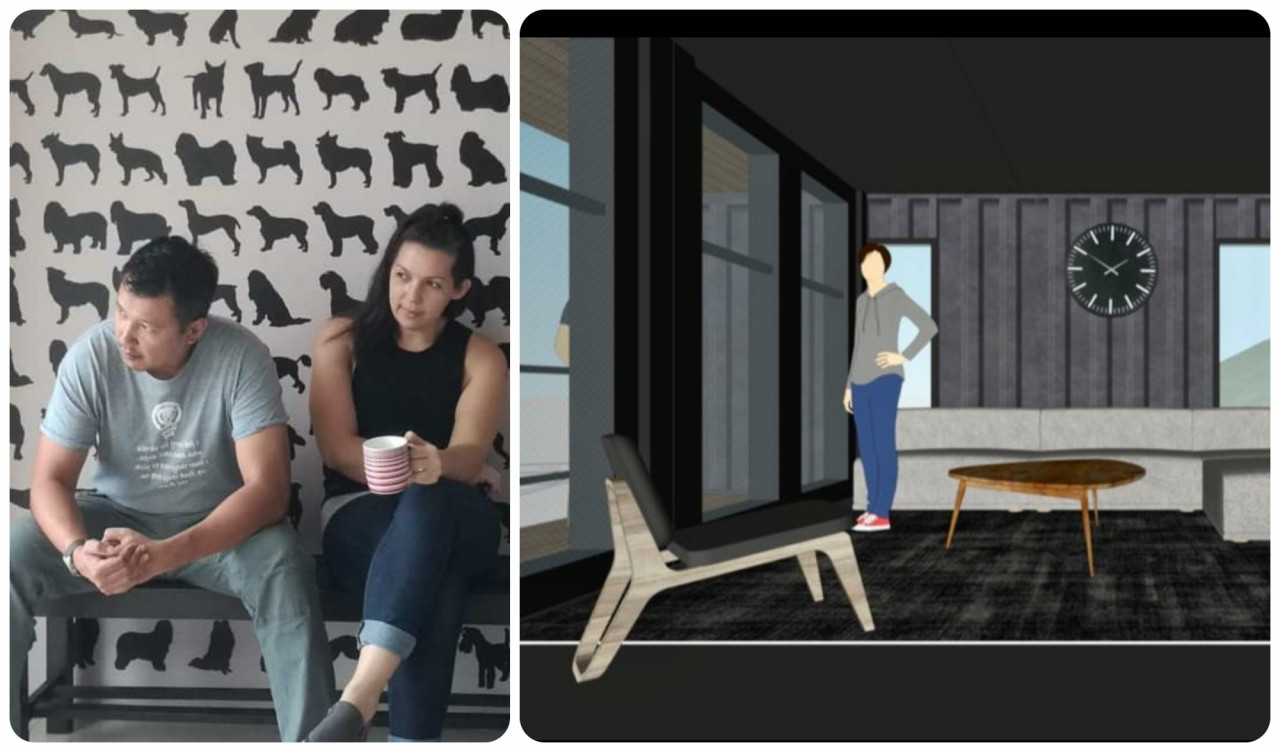
Sara and Sazly certainly hope to be blessed with ‘green fingers’, as they want their project to grow and grow. “Everything we have learnt along the way will make Jejari Hijau a pinnacle of eco-buildings. We hope to start a revolution among homeowners.”
Building the eco-home is revolutionary, indeed. At a fraction of the cost of a normal house, it will take less than six months to complete, as the floors, walls and roof are already part of the containers. But, there has been a bump along this new road.
“We anticipated moving in by September last year,” admits Sazly, “ then Covid put everything on hold. We had to camp out in our Doggy Bag office, alongside the 12 rescue dogs that guard the premises, so it was a big adjustment.
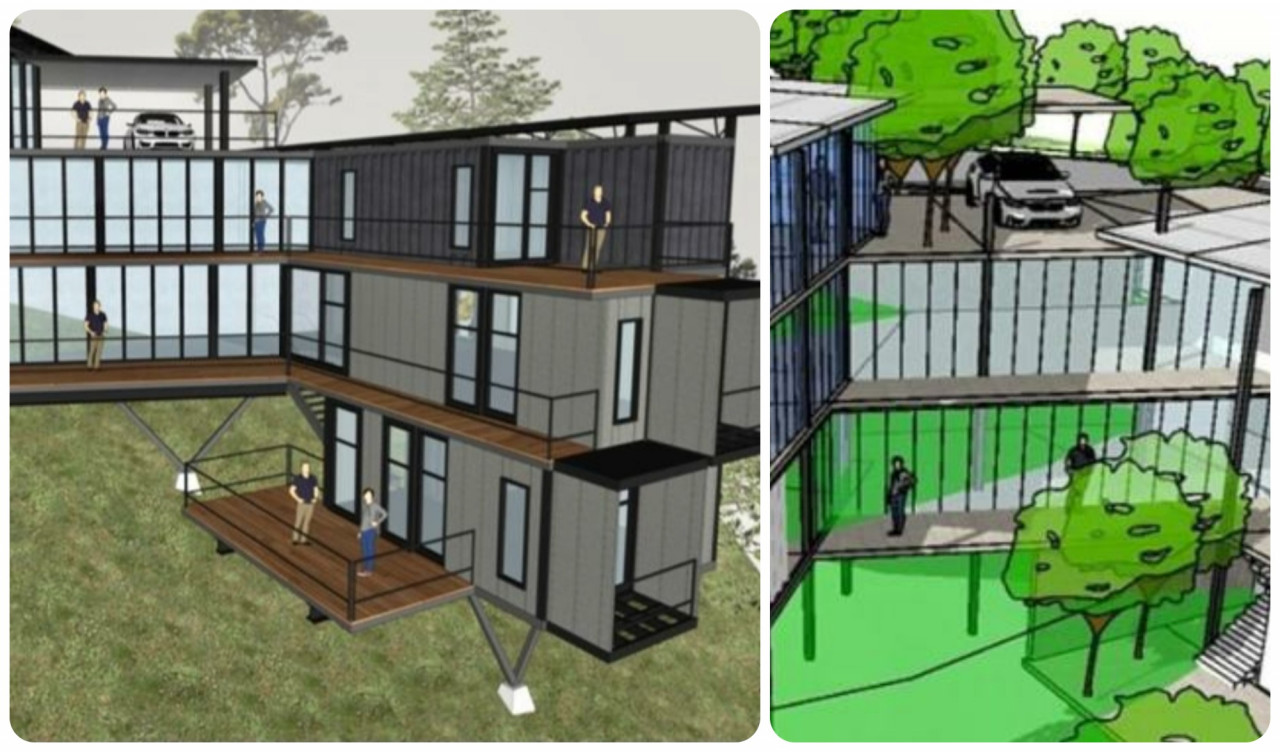
“Yet, this project has taught us to go with the flow, and the build team used the time well, revamping some ideas.”
Sazly does have some advice for anyone interested in following their route.
“First of all, sleep, eat and stay in one of Malaysia’s container hotels or houses. Do your research to see if it’s the life for you.”
You can follow Sara and Sazly’s eco-home progress on Jejari Hijau's Facebook page.
Sam Khoo and Rene Sully were each running successful businesses, but both had found that their work had lost its meaning. What was once fun had become a grind.
One day, Sam reached a turning point. “I woke up and asked Rene a simple question – ‘If I were to die tomorrow, what would be your plans? What would you do with the rest of your life?’ Rene said he would leave everything and just take his guitar to travel. So I said, ‘Well, let's do that!’”
The couple gave up their jobs and drastically downsized, selling their two separate studios, as well as all the equipment, furniture and possessions they didn’t use. They kept the bare bones of their home as a backstop for themselves and their four pets. Sam gave me more details.
“Our ultimate goal was to one day drive from Malaysia to the UK. To do this on our limited budget, we would have to live off the grid, keeping everything self-sufficient. We bought the first tiny van available, ‘Van Halen’, and started practising ‘van life’ in 2017.
They kitted the van with the essentials for self-sufficiency: a solar panel and generator, a gravity water filter, a butane stove, and a pop-up tent for using the disposable toilet and hand-pumped shower.
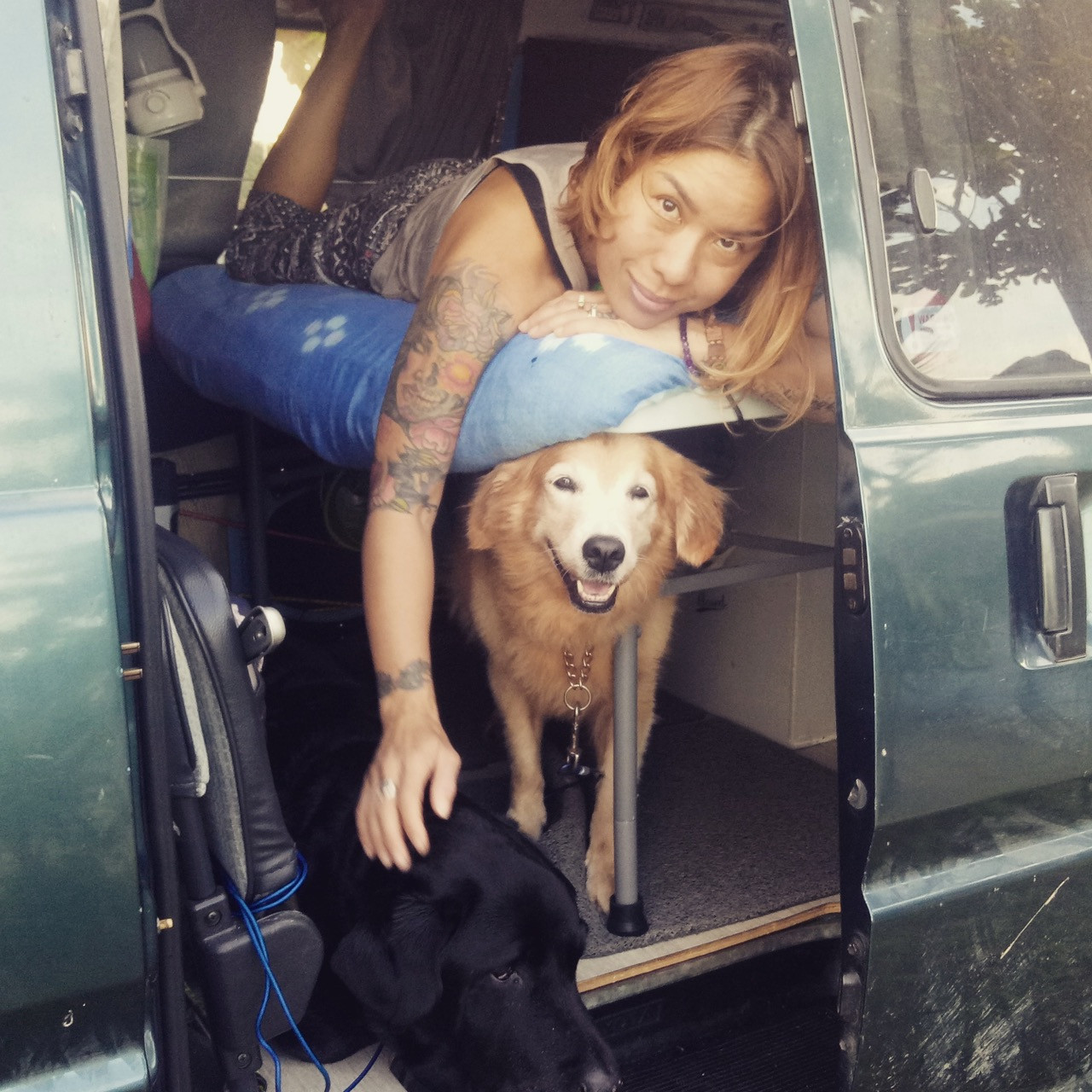
“Our first night in ‘Van Halen’ was on the seafront in Cherating. We were so happy in our rooftop tent, with a comfy mattress, a mosquito net and the cool sea breeze.”
From 2017 to 2019 Sam and Rene explored all of Malaysia (apart from Sabah and Sarawak) with their pets and then travelled around Thailand.
“The lack of space in the van was a real test. Everything was harder to do. To get one thing out you had to move everything about. It got messy.”
After Thailand, Sam and Rene built a second, roomier, campervan named ‘Mama Bear’.
“Mama Bear was easier to set up and pack away, as the beds were inside. We also felt less vulnerable.”
Safety had been a concern, particularly on occasions when there was no campsite to spend the night.
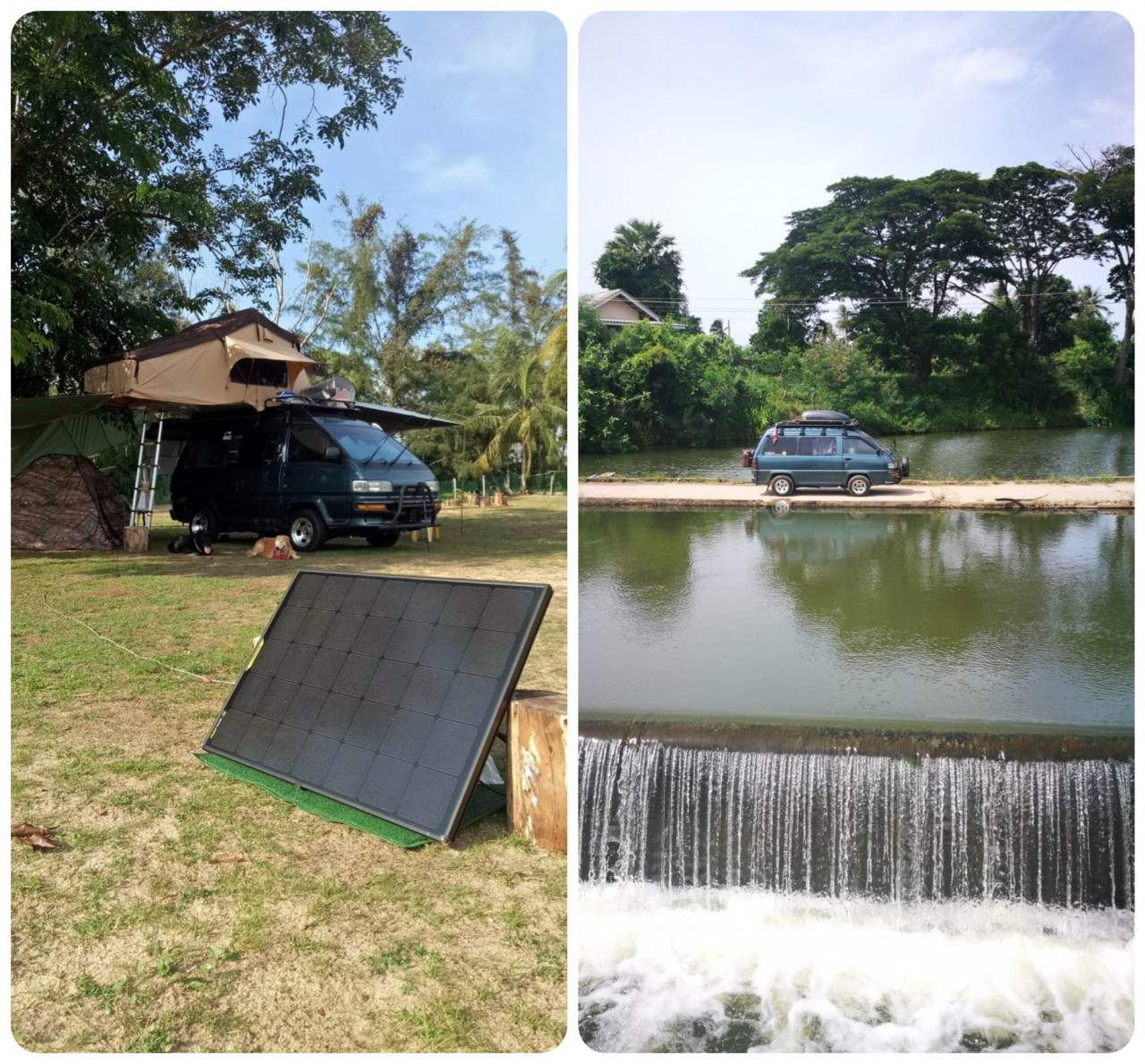
“My mind would start imagining, ‘What if we are harassed or attacked?’ Fear keeps people cooped up in a house. So, we assessed the risks and made sure we would be able to leave in an instant if necessary. Everywhere we stopped, people were very helpful and concerned for our welfare.”
Sam and Rene recorded their journeys under the name '24 Hour Travellers’. Starting their own YouTube channel helped them gain some modest sponsorship for their essential items. They had hoped for this enterprise to grow as they embarked on their UK expedition but, like many, they had their plans for 2020 thwarted.
“We were supposed to drive to the UK by now, but we have decided to use Covid time to learn new skills. We are helping a friend to refit an abandoned sailboat, and learning how to sail. We hope to acquire some basic sailing and maintenance skills. Perhaps in future, we can become live-a-boards, but we won’t know until we try! The pandemic has taught us not to plan too far ahead, to go with the flow.”
For all that they gave up, Sam and Rene have gained a different perspective on life. “We don't feel like we're running against time anymore. We appreciate the simplest things that we used to take for granted: electricity, running water, air conditioning. What we’ve gained is gratitude.”
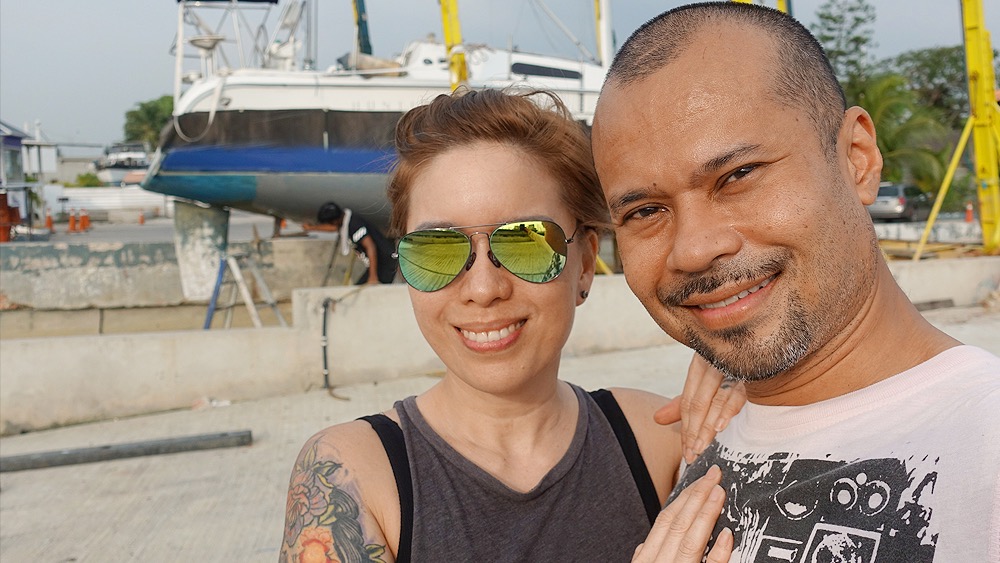
Follow 24 Hour Travellers’ adventures on YouTube.
The events of 2020 have caused hardship for many. Those of us who are fortunate enough to still live comfortable lives have been spurred on to rethink certain aspects.
Few would be ready to make the drastic changes that Sara, Sazly, Sam and Rene have. Yet, for some, working from home has highlighted how much energy we use, and at what expense.
For others, breaking into our savings has made us reconsider the prospects of buying a home in future.
So, perhaps the next decade will see more of us de-cluttering our lives, and opting for smaller, more modest, energy-efficient homes. Perhaps, the 20s will herald the start of ‘the simple life', in some way, for us all. – The Vibes, March 13, 2021



